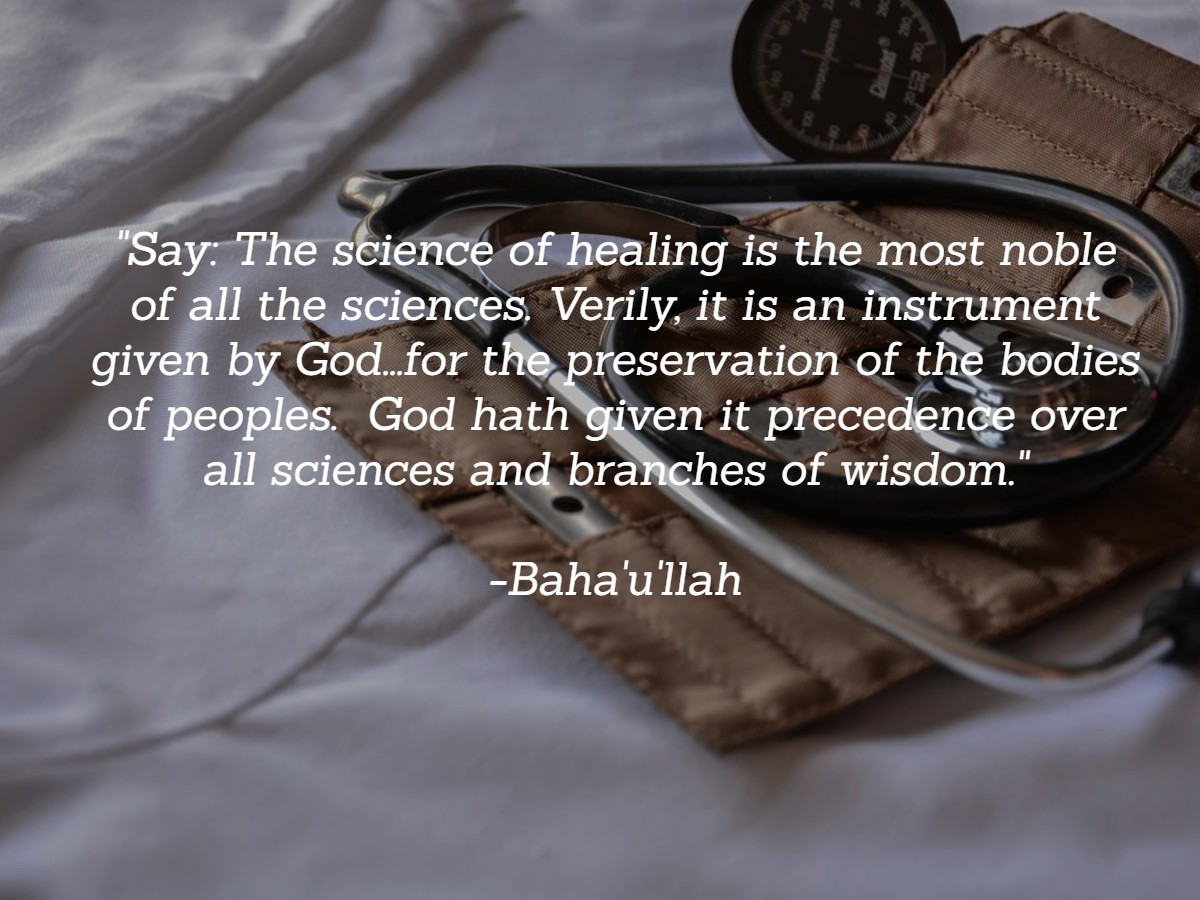One of the remarkable and extraordinary aspects of the pandemic and its response has been the degree to which we, as a human race, now rely on this amazing body of knowledge we call “science” to deal with the challenge. Human beings have been subject to plagues and epidemics for millennia. In the centuries prior to the 20th century, an average couple could expect to lose nearly half of their children to infectious diseases before the age of 5. It’s horrific and almost unimaginable. But the fact that it is unimaginable is because of the astonishing growth of human knowledge- our understanding of human disease and our increasing sophistication in being able to defeat it. The HIV epidemic, our most recent plague before this one, is now a very manageable chronic disease, and coronavirus will also one day in the not-too-distant future be subdued by the power of science. Science has become our common international language and every society that has embraced its power has received benefits and blessings many times over.
For people of faith, science is sometimes seen as a threat. It is no such thing, because, at its root, science is not something that exists “out there”- some kind of cold-hearted monster that reveals stark truths and uses them to its advantage. Rather, it exists “in here”- within us. Science is the human race’s most successful expression of human rationality- a primary aspect of us that makes us different from the rest of creation. It is therefore an expression of our transcendent spirit. This is a point that is made throughout the Baha’i writings, particularly those of ‘Abdu’l-Baha’, who praised science to a supreme degree.
The highest praise is due to men who devote their energies to science, and the noblest center is a center wherein the sciences and arts are taught and studied. Science ever tends to the illumination of the world of humanity. It is the cause of eternal honor to man, and its sovereignty is far greater than the sovereignty of kings. The dominion of kings has an ending; the king himself may be dethroned; but the sovereignty of science is everlasting and without end.
Baha’u’llah united in His Faith both science and religion. The common element to both of them was our “abstractness”. Science relies on our ability to generalize from the concrete to the abstract and then induce theories to fit the facts, and deduce further conclusions from those original premises. All of that is an abstract exercise- not material in any way. Similarly, to worship God is to worship an abstract reality, and the qualities we associate with God- wisdom, justice, mercy, and compassion. Indeed, in Baha’u’llah’s announcement of His own Revelation, He proclaims that humanity would soon be seeing an explosion of human knowledge- “Erelong shall We bring into being through thee exponents of new and wondrous sciences, of potent and effective crafts, and shall make manifest through them that which the heart of none of Our servants hath yet conceived.”
Human consciousness, in all its forms of expression, would be awakened.
“In this day, the fertilizing winds of the grace of God have passed over all things. Every creature hath been endowed with all the potentialities it can carry. And yet the peoples of the world have denied this grace! Every tree hath been endowed with the choicest fruits, every ocean enriched with the most luminous gems. Man, himself, hath been invested with the gifts of understanding and knowledge…Thus have We created the whole earth anew in this day, yet most of the people have failed to perceive it.”
In the middle of the 19th century, at the time of Baha’u’llah’s Revelation, European civilization had embraced scientific progress and was using it to its material advantage, subduing the vast reaches of the planet. As one can imagine, societies outside of Europe viewed this with great trepidation. While they admired what Europe was producing and achieving, they also viewed the “new sciences” with concern, aware that they would sweep away traditional structures. Baha’u’llah’s early followers were drawn from the lands encompassed by the great Islamic civilization, which was now in decline and falling behind Europe in nearly every respect. In response to these forces, Baha’u’llah instructed ‘Abdu’l-Baha’, then only 31 years old, to write a dissertation on the “advancement of civilization”. ‘Abdu’l-Baha’ chose to write this work anonymously and address it specifically to his home country of Persia.
Though 19th century Persian society is the context, the work has evident universal implication for any society that is seeking to “modernize”, and how to do that while not abandoning those elements that held it together in the first place- namely religious faith. As such, it beautifully expresses what religion is in its essence, and how both religion and scientific achievement are the two bright lights to guide human civilization. It has been published in English under the name “The Secret of Divine Civilization” and can be found here. The first paragraph is a beautiful song of praise to science itself.
“Praise and thanksgiving be unto Providence that out of all the realities in existence He has chosen the reality of man and has honored it with intellect and wisdom, the two most luminous lights in either world. Through the agency of this great endowment, He has in every epoch cast on the mirror of creation new and wonderful configurations. If we look objectively upon the world of being, it will become apparent that from age to age, the temple of existence has continually been embellished with a fresh grace, and distinguished with an ever-varying splendor, deriving from wisdom and the power of thought…
O ye that have minds to know! Raise up your suppliant hands to the heaven of the one God, and humble yourselves and be lowly before Him, and thank Him for this supreme endowment, and implore Him to succor us until, in this present age, godlike impulses may radiate from the conscience of mankind, and this divinely kindled fire which has been entrusted to the human heart may never die away.
Consider carefully: all these highly varied phenomena, these concepts, this knowledge, these technical procedures and philosophical systems, these sciences, arts, industries and inventions—all are emanations of the human mind. Whatever people has ventured deeper into this shoreless sea, has come to excel the rest. The happiness and pride of a nation consist in this, that it should shine out like the sun in the high heaven of knowledge. “Shall they who have knowledge and they who have it not, be treated alike?”
And the honor and distinction of the individual consist in this, that he among all the world’s multitudes should become a source of social good. Is any larger bounty conceivable than this, that an individual, looking within himself, should find that by the confirming grace of God he has become the cause of peace and well-being, of happiness and advantage to his fellow men? No, by the one true God, there is no greater bliss, no more complete delight.”
Image courtesy of the Center for Disease Control.

